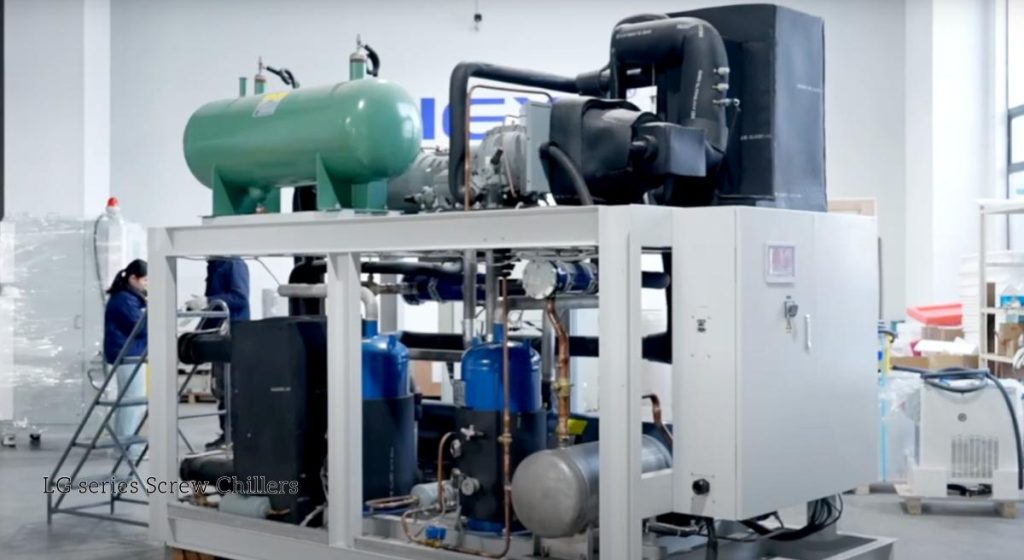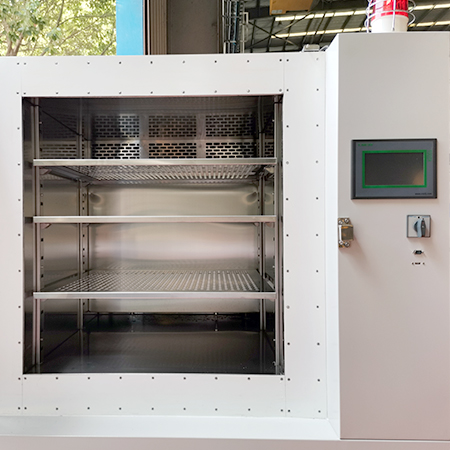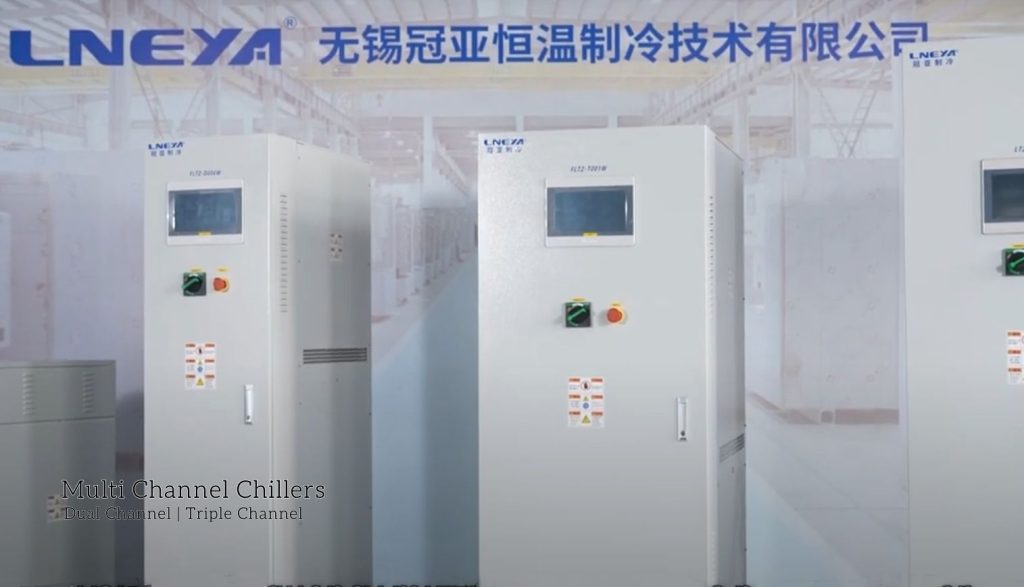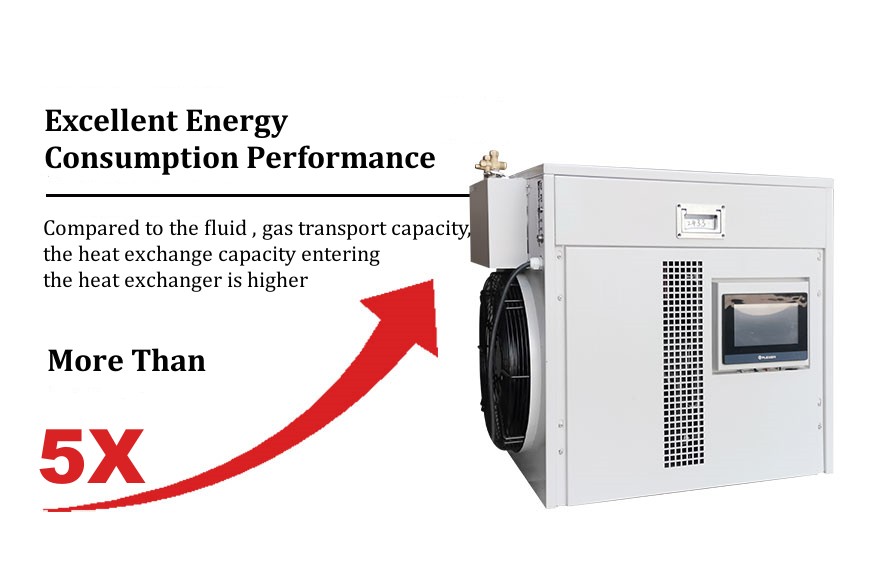API Reactor Cooling — Chiller Solutions and Temperature Control Strategies

- 4 Types of Refrigeration Systems Which One Fits Your Facility
- What is a VFD chiller VFD chiller vs Non VFD chiller
- What is a Gas Chiller
- What is a Scroll Chiller
- 2025년 8월
- 2025년 7월
- 2025년 6월
- 2025년 5월
- 2025년 3월
- 2025년 2월
- 2025년 1월
- 2024년 12월
- 2024년 11월
- 2024년 10월
- 2024년 9월
- 2024년 8월
- 2024년 7월
- 2024년 6월
- 2024년 5월
- 2024년 4월
- 2024년 3월
- 2024년 2월
- 2023년 9월
- 2023년 7월
- 2023년 6월
- 2023년 5월
- 2023년 1월
공냉식 냉각기 냉각기 냉각기 설치 냉각기 Chiller Troubleshooting 저온 조립 냉동고 냉각 냉각기 냉각 난방 순환기 냉각 난방 시스템 cooling system 이중층 유리 반응기 동적 온도 제어 시스템 냉동고 가스 냉각 냉각기 난방 순환기 산업용 냉각기 산업용 냉각 산업용 냉동고 산업용 냉장고 재킷 리액터 저온 냉각기 뉴스 제약 냉각기 공정 냉각기 원자로 냉각기 원자로 냉각 원자로 냉각 가열 원자로 가열 냉각 리액터 시스템 냉장 서큘레이터 냉장 냉각기 스크류 냉각기 반도체 냉각기 반도체 테스트 냉각기 sundi tcu 온도 제어 테스트 챔버 온도 조절기 초저온 냉각기 차량 테스트 냉각기 물 냉각기 수냉식 냉각기 wtd
An Active Pharmaceutical Ingredient (API) is the biologically active component in a drug responsible for its intended therapeutic effects. For example, the API in ibuprofen tablets is ibuprofen. Most APIs are complex organic compounds, and their production involves a variety of chemical reactions, including condensation, oxidation, reduction, and cyclization.
These reactions release significant amounts of heat. Insufficient cooling can degrade the API and pose significant process safety risks. Therefore, 산업용 냉각기 또는 동적 온도 제어 시스템 are essential equipment for pharmaceutical reactors.
Challenges of Pharmaceutical Reactor Temperature Control
Highly Exothermic Reactions
Many chemical reactions in API manufacturing rapidly release significant amounts of heat once initiated. Failure to dissipate this heat in a timely manner can lead to thermal runaway. You might think that thermal runaway simply halts the reaction and compromises product quality. In reality, some reactions at high temperatures can produce CO2 or hazardous gases, which can increase pressure in a sealed reactor and create a significant risk of explosion and leakage.
Multi-Stage Temperature Control
The complete API synthesis process typically involves multiple stages, including reaction initiation, main reaction, intermediate transformation, and controlled crystallization, each with different temperature requirements. At the start of the reaction, the reaction rate must be controlled by temperature control.
During the main reaction phase, the reactants should be slowly heated within the reactor. During the intermediate conversion phase, the temperature should be lowered to a range suitable for the intermediate conversion.
During the crystallization phase, the reaction solution should be cooled to a low temperature and maintained at a constant temperature to ensure uniform crystallization of the product. A chiller with only simple cooling and heating functions cannot meet complex temperature control requirements.
Contamination
Because APIs are intended for human use, they require extremely high cleanliness levels. Any impurities can compromise the purity, safety, and efficacy of the drug. Although the reactor cooling system does not directly contact the API, if an open-loop cooling system is used, or if the system employs non-pharmaceutical-grade coolant and has potential leak points, contamination risks increase.
Pharmaceutical Reactor Temperature Control Solutions
Precise Temperature Control
Industrial chillers use multiple Pt100 sensors for sampling at the coolant inlet and outlet, as well as within the reactor. This high sampling frequency and low error allow for real-time monitoring of temperature fluctuations within the reactor.
Furthermore, the control system utilizes a PID algorithm to automatically adjust cooling and heating power based on changes in heat load, preventing temperature overshoot or undershoot. The system supports multiple levels of temperature precision, which can be tailored to specific process requirements.
Multi-step Temperature Profile
The temperature profile control function allows you to pre-program the reaction process in stages, including parameters such as target temperature, ramp rates, and hold time. Once programmed, the chiller automatically executes the program, switching between cooling and heating. Furthermore, temperature curves can be saved and reused, helping to improve reaction consistency.

Closed-Loop System
While any small leak in an open cooling system could indirectly enter the reactor, a closed-loop chiller prevents contact between the coolant and the reactants at the source. The coolant in a closed-loop system has no direct contact with air, preventing coolant oxidation, moisture absorption, or evaporation, even under elevated temperatures. This prevents impurities such as air, dust, and microorganisms from entering the circulation system, ensuring compliance with cleanroom standards.
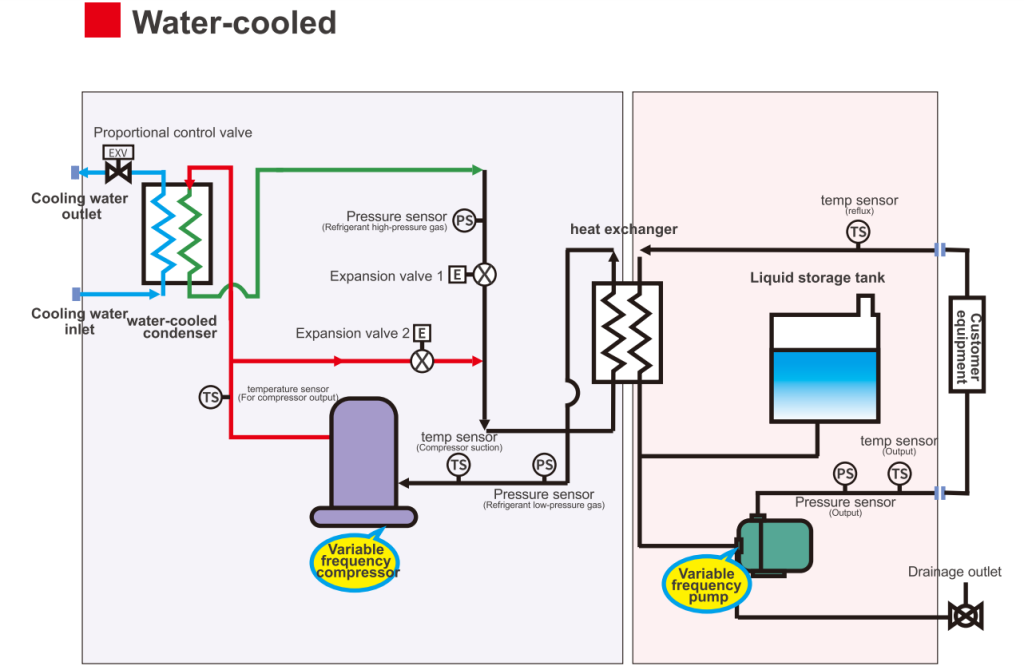
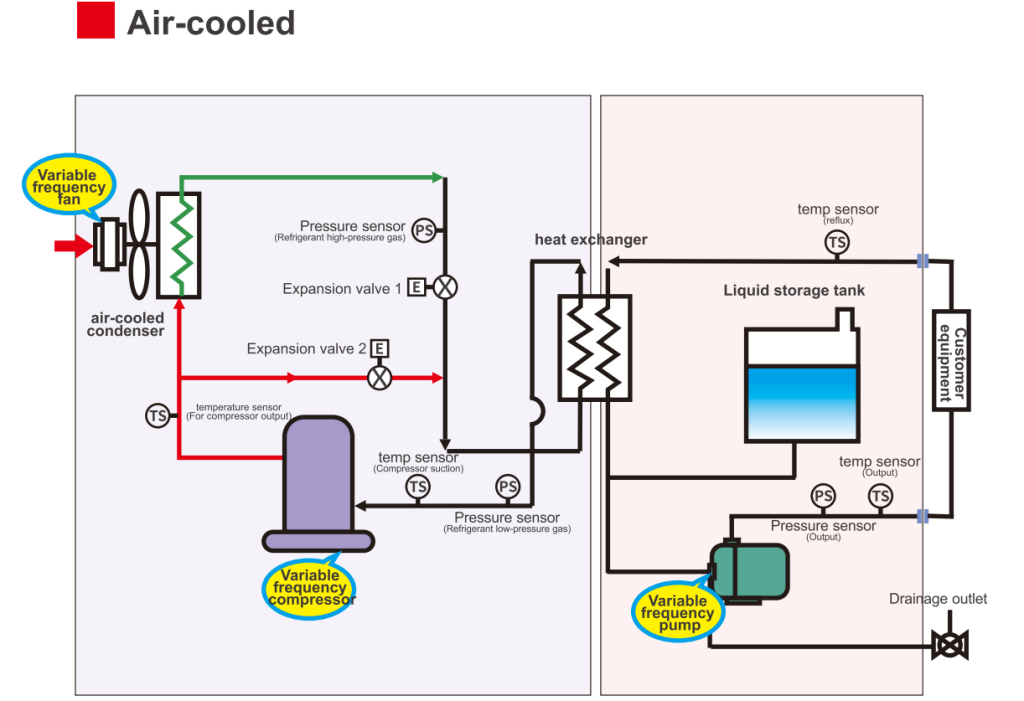
Quick Response
To avoid rapid temperature increases that can lead to product quality degradation and safety hazards, pharmaceutical reactor chillers must react instantly to temperature fluctuations, rapidly adjusting cooling and heating power to restore the reaction temperature to the target. This involves technical specifications such as temperature stabilization time, temperature adjustment slope, and heat load response delay.
Common Chillers for API Reactor Cooling
Common pharmaceutical reactor cooling equipment includes the following:
Low-Temperature Chillers
Low-temperature chillers can quickly remove heat generated by the reaction, maintaining process temperatures from -50°C up to ambient conditions. They are essential for low-temperature reaction stages in API production, such as crystallization, condensation, and purification.
동적 온도 제어 시스템
Dynamic temperature control systems are integrated temperature control solutions that combine heating and cooling functions. They are suitable for reactions requiring precise control of temperature gradients and can be used with glass reactors, jacketed reactors, and kettle reactors. These systems are ideal for processes with fluctuating thermal loads and rapid temperature transitions.
Explosion-Proof Chillers
The solvents used in API synthesis may be flammable. Explosion-proof chillers are essential in such hazardous environments to prevent sparks or high temperatures from causing safety hazards.

결론
If you’re looking for a cooling system for your pharmaceutical reactor, LNEYA is happy to provide selection advice and a detailed quote. We have extensive experience designing and producing reactor chillers for numerous pharmaceutical companies and can customize a design based on your application.
관련 냉각기
문의하기
TEL:전화
이메일: 이메일
위챗 및 왓츠앱:

Wechat QR

문의 사항이 있으시거나 견적이 필요하신가요? 아래 양식을 작성해 주시면 저희 팀이 24시간 이내에 답변해 드리겠습니다.
 LNEYA 산업용 냉각기 제조업체 공급 업체
LNEYA 산업용 냉각기 제조업체 공급 업체









